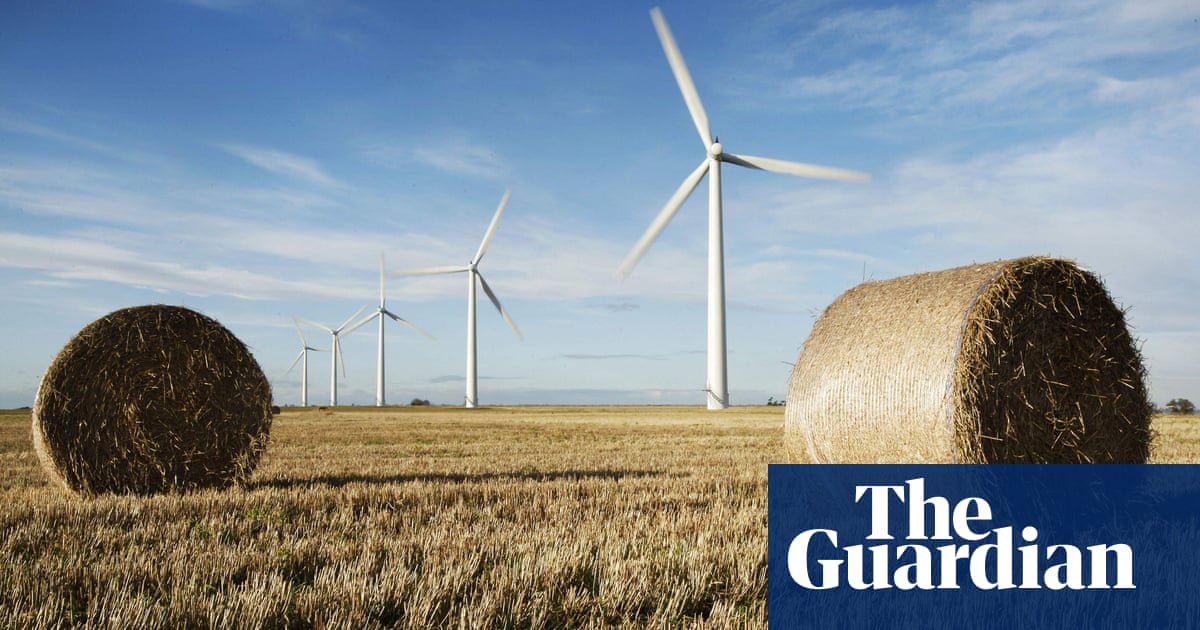England could produce 13 times more renewable energy than it does now, while using less than 3% of its land, analysis has found.
Onshore wind and solar projects could provide enough electricity to power all the households in England two and a half times over, the research by Exeter University, commissioned by Friends of the Earth (FoE), suggested.
Currently, about 17 terawatt hours of electricity a year comes from homegrown renewables on land. But there is potential for 130TWh to come from solar panels, and 96TWh from onshore wind.
These figures are reached by only taking into account the most suitable sites, excluding national parks, areas of outstanding natural beauty, higher grade agricultural land and heritage sites.
Some commentators have argued that solar farms will reduce the UK’s ability to grow its own food, but the new analysis suggests there is plenty of land that can be used without impairing agricultural production. More land is now taken up by golf courses than solar farms, and developers can be required to enhance biodiversity through simple measures such as maintaining hedgerows and ponds.
…
The calculations of the land needed exclude rooftop solar panels. Ministers have resisted calls for solar panels to be made mandatory on new-build housing. Kitting out a new-build home with renewables, high-grade insulation and other low-carbon features costs less than £5,000 for a housing developer, but retrofitting it to the same standard costs about £20,000, with the cost borne by the householder. Housing developers are among the largest donors to the Conservative party.



You can’t build any kind of power generation facility without having some negative environmental effect. Tidal power does have quite serious impacts. The Severn Barrage was talked about decades ago, but even as far back as the 80s was seen as too environmentally problematic even though that one scheme alone could produce 7% of the UK’s power (more today given efficiency advances as well as technological advances on the generation side).